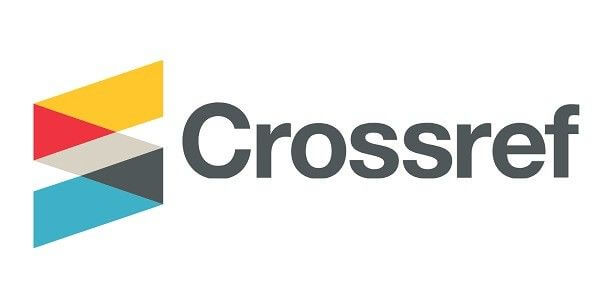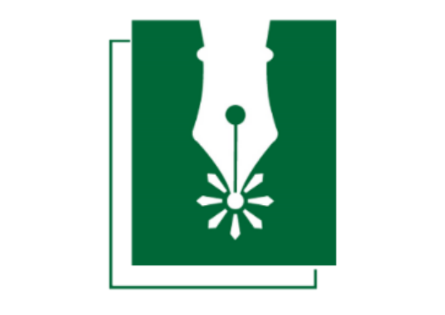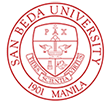The Relationship between Growth Mindsets and Climate Action Among Filipino Early Adults
Keywords:
growth mindsets, climate action, Filipino early adults, implicit beliefs, construct validityAbstract
Education is considered crucial for spreading awareness about climate change. By providing knowledge, skills, and values, it empowers individuals to become agents of change. However, transforming knowledge into action would require an understanding of its determinants. Emerging research on mindsets suggests a connection between growth mindsets and sustainability efforts; however, there are few empirical studies, particularly those focusing on young Filipino adults. Research indicates that individuals with a growth mindset are more aware of climate change, believe in mitigation, and are more likely to act sustainably. However, the influence of individual and group mindsets on climate action, particularly in diverse cultural contexts like the Philippines, requires further investigation. The purpose of the study was to examine the relationship between growth mindsets and climate actions. This study included 592 (263 male and 330 female) young Filipino adults (ages 18 to 26) in the National Capital Region (NCR). This study adapted and validated the measures for growth mindset and climate action from Rissanen et al. (2024). The CFA results indicated acceptable structural validity for the scales after the removal of poorly fitting items. The results of the descriptive statistics suggest that participants scored slightly higher on "Mindsets about groups" (ITG) than on "Mindset about persons" (ITP). In terms of climate action, "Willingness to build a sustainable world" (CARE) is slightly higher than "Inclination to discuss climate change" (DISC). The mean score for "Individual climate action" (IND) is higher than that of "Collective climate action" (COL). In terms of zero-order correlations, "Mindsets about groups" (ITG) and "Willingness to build a sustainable world" (CARE) were the only variables that exhibited significant relationships. Regression analysis revealed that "Mindsets about groups" (ITG) significantly, though weakly, predicted "Willingness to build a sustainable world" (CARE), contrasting with Western research that suggests more individualistic tendencies in European youth. This divergence highlights potential cultural differences in climate action approaches.
References
Alampay, L. P. (2024). Cultural values, parenting and child adjustment in the Philippines. International Journal of Psychology, 59(4), 568-577. https://doi.org/10.1002/ijop.13117. DOI: https://doi.org/10.1002/ijop.13117
Aruta, J. J. B. R. (2025). Climate anxiety mediates environmental concern and climate action among Filipino youth: does mitigation response efficacy belief matter?. Current Psychology, 44(1), 103-113. https://doi.org/10.1007/s12144-024-07150-7 DOI: https://doi.org/10.1007/s12144-024-07150-7
Awang, Z. (2015). SEM made simple: A gentle approach to learning Structural Equation Modeling. MPWS Rich Publication.
Barreda, A. B. (2018). Assessing the level of awareness on climate change and sustainable development among students of Partido State University, Camarines Sur, Philippines. The Journal of Sustainability Education. Vol. 17.
Bentler, P. M. (1990). Comparative fit indexes in structural models. Psychological bulletin, 107(2), 238. https://doi.org/10.1037/0033-2909.107.2.238. DOI: https://doi.org/10.1037//0033-2909.107.2.238
Bernardo, A. B. (2023). Growth mindset and reading proficiency of ESL learners: Examining the role of students’ socioeconomic status using PISA 2018 Philippine data. European Journal of Psychology of Education, 38(2), 675-693. https://doi.org/10.1007/s10212-022-00629-6. DOI: https://doi.org/10.1007/s10212-022-00629-6
Bonnie, R. J., Stroud, C., & Breiner, H. (Eds.). (2014). Investing in the health and well-being of young adults. National Academies Press. doi: 10.17226/18869 DOI: https://doi.org/10.17226/18869
Bulaon, J. P., & Shoji, M. (2022). Disaster Exposure in Childhood and Adult Noncognitive Skill: Evidence from the Philippines. University Library of Munich, Germany.
Burnette, J. L., O’Boyle, E. H., VanEpps, E. M., Pollack, J. M., & Finkel, E. J. (2013). Mind-sets mat¬ter: A meta-analytic review of implicit theories and self-regulation. Psychological Bulletin, 139(3), 655–701. https://doi.org/10.1037/a0029531 DOI: https://doi.org/10.1037/a0029531
Bustamante, C. B., & Viloria, R. (2021). The Extent of Sustainability Practices in San Beda University: The Basis for Action Plan Formulation. Bedan Research Journal, 6(1), 171–195. https://doi.org/10.58870/berj.v6i1.26. DOI: https://doi.org/10.58870/berj.v6i1.26
Byrne, B. M. (2010). Structural equation modeling with AMOS: Basic concepts, applications, and programming (2nd ed.). Routledge.
Cabrera, A. C. E., Agsalog, C. M. I., Ibea, R. C., Tara, O. E., Corpuz, J. R. A., & Tabunan, M. L. (2023). Climate Fiction for the Classroom through Ecocriticism and Collaborative Digital Text Annotation. The Asian Journal of Education and Human Development, 4(1). DOI: https://doi.org/10.69566/ajehd.v4i1.78
Chan, D. W., Sun, X., & Chan, L. K. (2022). Domain-specific growth mindsets and dimensions of psycho¬logical well-being among adolescents in Hong Kong. Applied Research Quality Life, 17(2), 1137– 1156. https://doi.org/10.1007/s11482-020-09899-y. DOI: https://doi.org/10.1007/s11482-020-09899-y
Colebrook-Claude, C. (2019). Adolescent internal environmental locus of control scale (AINELOC) mea¬surement tool. American Journal of Environmental Sciences, 15(2), 64–81. https://doi.org/10.3844/ajessp.2019.64.81. DOI: https://doi.org/10.3844/ajessp.2019.64.81
Costa, A., & Faria, L. (2018). Implicit theories of intelligence and academic achievement: A meta-analytic review. Frontiers in Psychology, 9. https://doi.org/10.3389/fpsyg. 2018.00829. DOI: https://doi.org/10.3389/fpsyg.2018.00829
Cuadrado, E., Macias-Zambrano, L., Guzman, I., Carpio, A. J., & Tabernero, C. (2023). The role of implicit theories about climate change malleability in the prediction of pro-environmental behavioral inten¬tions. Environment Development and Sustainability, 25(10), 11241–11261. https://doi.org/10.1007/s10668-022-02525-x. DOI: https://doi.org/10.1007/s10668-022-02525-x
De Leon, J.A.V. (2024). Sustainability and Curriculum Studies in the Philippines. In: Leal Filho, W., Ng, T.F., Iyer-Raniga, U., Ng, A., Sharifi, A. (eds) SDGs in the Asia and Pacific Region. Implementing the UN Sustainable Development Goals – Regional Perspectives. Springer, Cham. https://doi.org/10.1007/978-3-031-17463-6_59. DOI: https://doi.org/10.1007/978-3-031-17463-6_59
Department of Education. (n.d.). The need for climate change education. Climate Change Education. Retrieved May 17, 2025, from https://www.deped.gov.ph/climate-change-education/cce-in-the-philippines/.
Department of Education. (2011). DepEd Order No. 93, s. 2011: Mandated programs, projects and activities, various forms, and targets pertinent to the Youth for Environment in Schools (YES) program. Philippines. Retrieved from https://www.deped.gov.ph/wp-content/uploads/2011/11/DO_s2011_93.pdf.
Department of Education. (2014). DepEd Order No. 5, s. 2014: Implementing Guidelines on the Integration of Gulayan sa Paaralan, Solid Waste Management and Tree Planting Under the National Greening Program (NGP). Philippines. Retrieved from https://www.deped.gov.ph/wp-content/uploads/2014/02/DO_s2014_05.pdf.
Department of Education, Office of the Undersecretary for Administration (OUA). (2020, September 21). OUA MEMO 00-0920-0168 [Memorandum]. Retrieved from https://depedro8.azurewebsites.net/wp-content/uploads/2020/09/OUA-MEMO-00-0920-0168.pdf.
Dweck, C. S., Chiu, C., & Hong, Y. (1995). Implicit theories and their role in judgments and reactions: A word from two perspectives. Psychological Inquiry, 6(4), 267–285. https://doi.org/10.1207/s15327965pli0604_1. DOI: https://doi.org/10.1207/s15327965pli0604_1
Dweck, C. S. (2000). Self-Theories: Their role in motivation, personality and development. Psychology Press.
Dweck, C. S., & Leggett, E. L. (1988). A social-cognitive approach to motivation and personality. Psychological Review, 95(2), 256–273. https://doi.org/10.1037/0033-295X.95.2.256. DOI: https://doi.org/10.1037//0033-295X.95.2.256
Duchi, L., Lombardi, D., Paas, F., & Loyens, S. M. (2020). How a growth mindset can change the climate: The power of implicit beliefs in influencing people's view and action. Journal of Environmental Psychology, 70, 101461. https://doi.org/10.1016/j.jenvp.2020.101461. DOI: https://doi.org/10.1016/j.jenvp.2020.101461
Edralin, D., & Pastrana, R. (2022). Advancing the pursuit of the United Nations Sustainable Development Goals: Initiatives of selected publicly listed companies in the Philippines. Bedan Research Journal, 7(1), 1–47. https://doi.org/10.58870/berj.v7i1.31. DOI: https://doi.org/10.58870/berj.v7i1.31
Edralin, D., & Pastrana, R. (2019). Sustainability Reporting of Leading Global Universities in Asia, Europe, and USA. Bedan Research Journal, 4(1), 24–45. https://doi.org/10.58870/berj.v4i1.2. DOI: https://doi.org/10.58870/berj.v4i1.2
Hair, J. F., Black, W. C., Babin, B. J., & Anderson, R. E. (2010). Multivariate data analysis (7th ed.). Pearson Prentice Hall.
Halperin, E., Russell, A. G., Trzesniewski, K. H., Gross, J. J., & Dweck, C. S. (2011). Promoting the Mid¬dle East peace process by changing beliefs about group malleability. Science, 333(6050), 1767–1769. https://doi.org/10.1126/science.12029. DOI: https://doi.org/10.1126/science.1202925
Haukås, Å., & Mercer, S. (2021). Exploring pre-service language teachers’ mindsets using a sorting activ¬ity. Innovation in Language Learning and Teaching, 16(3), 221–233. https://doi.org/10.1080/17501 229.2021.1923721. DOI: https://doi.org/10.1080/17501229.2021.1923721
Hong, Yy., Chiu, Cy., Dweck, C.S. (1995). Implicit Theories of Intelligence. In: Kernis, M.H. (eds) Efficacy, Agency, and Self-Esteem. The Springer Series in Social Clinical Psychology. Springer, Boston, MA. https://doi.org/10.1007/978-1-4899-1280-0_10. DOI: https://doi.org/10.1007/978-1-4899-1280-0_10
Hu, L. T., & Bentler, P. M. (1999). Cutoff criteria for fit indexes in covariance structure analysis: Conventional criteria versus new alternatives. Structural Equation Modeling, 6(1), 1–55. https://www.doi.org/10.1080/10705519909540118. DOI: https://doi.org/10.1080/10705519909540118
Jensen, B. B., & Schnack, K. (1997). The action competence approach in environmental education. Envi¬ronmental Education Research, 3(2), 163–178. https://doi.org/10.1080/1350462970030205. DOI: https://doi.org/10.1080/1350462970030205
Lapada, A. (2022). Disaster risk reduction knowledge among Filipino senior high school students. Journal of Social Sciences Review, 2(1), 56-73. DOI: 10.54183/jssr.v2i1.27 DOI: https://doi.org/10.54183/jssr.v2i1.27
Leggett, E. L. (1985). Children’s entity and incremental theories of intelligence: Relationships to achievement behavior. Annual Meeting of the Eastern Psychological Association.
Levy, S. R., Stroessner, S. J., & Dweck, C. S. (1998). Stereotype formation and endorsement: The role of implicit theories. Journal of Personality and Social Psychology, 74(6), 1421–1436. https://doi.org/10.1037/0022-3514.74.6.1421. DOI: https://doi.org/10.1037//0022-3514.74.6.1421
Lualhati, G. P., Catibog, F. J. A., Holgado, R. A. L., & Liwanag, J. M. A. (2018). Discovering Ecological Awareness of Filipino Education Students. International Journal of Applied Science, 1(2), p37-p37. https://doi.org/10.30560/ijas.v1n2p37. DOI: https://doi.org/10.30560/ijas.v1n2p37
Makel, M. C., Snyder, K. E., Thomas, C., Malone, P. S., & Putallaz, M. (2015). Gifted students’ implicit beliefs about intelligence and giftedness. Gifted Child Quarterly, 59(4), 203–212. https://doi.org/10.1177/0016986215599057. DOI: https://doi.org/10.1177/0016986215599057
Mamon, M. A. C., Suba, R. A. V., & Son, I. L. (2017). Disaster risk reduction knowledge of Grade 11 students: Impact of senior high school disaster education in the philippines. International Journal of Health System and Disaster Management, 5(3), 69. https://doi.org/10.4103/IJHSDM.IJHSDM_16_17.
Matsunaga, M. (2010). How to Factor-Analyze Your Data Right: Do's, Don'ts, and How-To's. International journal of psychological research, 3(1), 97-110. DOI: 10.21500/20112084.854. DOI: https://doi.org/10.21500/20112084.854
Molden, D. C., & Dweck, C. S. (2006). Finding meaning in psychology: A lay theories approach to self-regulation, social perception, and social development. American Psychologist, 61(3), 192–203. https://doi.org/10.1037/0003-066X.61.3.192. DOI: https://doi.org/10.1037/0003-066X.61.3.192
Nieva, A. (2022). The Relationship between Career Interests and Academic Achievements in English, Mathematics, and Science of Grade 10 Students. International Journal of Arts, Sciences and Education, 3(2 June Issue). Retrieved from http://www.mail.ijase.org/index.php/ijase/article/view/122
Nieva, A. (2023). Construct validation of the teacher attitude to inclusion scale for Filipino pre-service teachers. Bedan Research Journal, 8(1), 305–329. https://doi.org/10.58870/berj.v8i1.56 DOI: https://doi.org/10.58870/berj.v8i1.56
Nieva, A. M. (2024). Personality Traits as Predictors of Pro-Environmental Behavior: Evidence from the Philippines. Bedan Research Journal, 9(1), 145–173. https://doi.org/10.58870/berj.v9i1.68. DOI: https://doi.org/10.58870/berj.v9i1.68
Nieva, A. M., Quilon, A. D., Butac, S. R., & Beltran, R. M. (2024). The Predictive Role of Hope on the Online Student Engagement of Filipino Pre-Service Teachers. International Journal of Research and Innovation in Social Science, 8(3s), 5465-5473. https://dx.doi.org/10.47772/IJRISS.2024.803411S. DOI: https://doi.org/10.47772/IJRISS.2024.803411S
Nieva, A. M., Quilon, A. D., Prudente, J. E., & Cuaresma, E. R. (2025). The Structural Validity of the Employee Performance Scale for Filipino Workers (EPS-FW). International Journal of Research and Innovation in Social Science, 9(17), 247-256. https://dx.doi.org/10.47772/IJRISS.2025.917PSY0025. DOI: https://doi.org/10.47772/IJRISS.2025.917PSY0025
Perez, A. S. (2021). Environmental Education Among High School Students in Bicol University. Legaspi/Philippines: Bicol University, 1-21.
Quilon, A., & Kurniawan, Y. (2023). Online learning environment and mental health among university students. Bedan Research Journal, 8(1), 259–284. https://doi.org/10.58870/berj.v8i1.54. DOI: https://doi.org/10.58870/berj.v8i1.54
Quilon , A. (2024). Role of Eco-spirituality in Psychological Well-Being of Selected Working Women. Bedan Research Journal, 9(1), 196–220. https://doi.org/10.58870/berj.v9i1.70. DOI: https://doi.org/10.58870/berj.v9i1.70
Rissanen, I., Kuusisto, E., Aarnio-Linnanvuori, E., Portus, R., Williams, S. J., Laggan, S., ... & Vainikainen, M. P. (2024). Exploring the association between growth mindsets and climate action with young people. Social Psychology of Education, 1-21. https://doi.org/10.1007/s11218-024-09937-9. DOI: https://doi.org/10.1007/s11218-025-10053-5
Rada, E., & Nieva, A. (2024). Translation and Validation of the Filipino Sustainability Consciousness Questionnaire. Bedan Research Journal, 9(1), 53–82. https://doi.org/10.58870/berj.v9i1.65. DOI: https://doi.org/10.58870/berj.v9i1.65
Republic Act No. 10121. (2010). An Act Strengthening the Philippine Disaster Risk Reduction and Management System, Providing for the National Disaster Risk Reduction and Management Framework and Institutionalizing the National Disaster Risk Reduction and Management Plan, Appropriating Funds Therefor and for Other Purposes. Retrieved from https://www.officialgazette.gov.ph/2010/05/27/republic-act-no-10121/.
Robins, R. W., & Pals, J. L. (2002). Implicit self-theories in the academic domain: Implications for goal orientation, attributions, affect, and self-esteem change. Self and Identity, 1(4), 313–336. https://doi.org/10.1080/15298860290106805. DOI: https://doi.org/10.1080/15298860290106805
Soliman, M., & Wilson, A. E. (2017). Seeing change and being change in the world: The relationship between lay theories about the world and environmental intentions. Journal of Environmental Psy¬chology, 50, 104–111. https://doi.org/10.1016/j.jenvp.2017.01.008. DOI: https://doi.org/10.1016/j.jenvp.2017.01.008
Stevens, J. P. (2002). Applied multivariate statistics for the social sciences (4th ed.). Mahwah, NJ: Lawrence Erlbaum. Taber, K. S. (2018). The Use of Cronbach’s Alpha When Developing and Reporting Research Instruments in Science Education. Research in Science Education, 48(6), 1273–1296. https://www.doi.org/10.1007/s11165-016-9602-2. DOI: https://doi.org/10.1007/s11165-016-9602-2
United Nations. (n.d.). Climate change. Global Issues. Retrieved May 17, 2025, from https://www.un.org/en/global-issues/climate-change.
Uras, F. (2025). Sustainable healthcare and medical laboratories: The impact of global collaborations between frameworks and initiatives. Clinical Biochemistry, 110945. https://doi.org/10.1016/j.clinbiochem.2025.110945. DOI: https://doi.org/10.1016/j.clinbiochem.2025.110945
Valencia MIC (2018) Introducing education for sustainable development (ESD) in the educational institutions in the Philippines. Journal of Sustainable Development Education and Research, 2(1), 51-57. https://doi.org/10.17509/jsder.v2i1.12358. DOI: https://doi.org/10.17509/jsder.v2i1.12358
West, S. G., Taylor, A. B., & Wu, W. (2012). Model fit and model selection in structural equation modeling. In R. H. Hoyle (Ed.), Handbook of structural equation modeling (pp. 209– 231). New York, NY: The Guilford Press.
Youth Climate Justice Survey (2020).. Eco-Unesco. https://ecounesco.ie/wp-content/uploads/2021/02/YouthClimateJusticeSurveyReport.pdf.
Published
How to Cite
Issue
Section
Copyright (c) 2025 Alvin Nieva , Pedrito Aton

This work is licensed under a Creative Commons Attribution-NonCommercial-NoDerivatives 4.0 International License.











